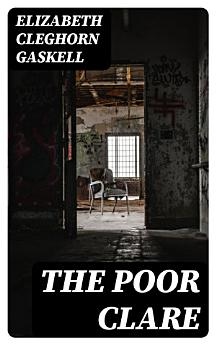The Poor Clare
Sept 2022 · DigiCat
eBook
54
Pages
family_home
Eligible
info
reportRatings and reviews aren’t verified Learn more
About this eBook
In "The Poor Clare," Elizabeth Cleghorn Gaskell presents a compelling narrative that intertwines themes of poverty, social class, and the complexities of human morality. Set against the backdrop of 19th-century England, the novella employs a rich, descriptive style that draws readers into the emotional landscapes of its characters. Gaskell's deft use of dialogue and vivid imagery captures the stark realities faced by the impoverished, while also exploring the moral dilemmas that arise in a rigid class structure. This work not only reflects the Victorian social consciousness but also serves as a profound commentary on the intersectionality of gender and socioeconomic status. Gaskell, a renowned novelist and social reformer, was deeply influenced by her own experiences and the societal struggles she witnessed during her lifetime. Growing up in a socially conscious family, Gaskell's empathy for the underprivileged permeates her writings. Her connections with working-class communities and her participation in social causes shaped her narratives, allowing her to portray the nuances of human experience with authenticity and compassion. For readers seeking a thought-provoking exploration of social issues framed within a poignant story, "The Poor Clare" is a must-read. Gaskell's nuanced portrayal of her characters invites reflection on the complexities of morality and the conditions of the less fortunate, making this novella as relevant today as it was in the Victorian era.
About the author
Elizabeth Cleghorn Gaskell (1810–1865) was an eminent British author during the Victorian era, known for her detailed portraits of the lives of different social classes and her keen insight into human nature. Born on September 29, 1810, in London, Gaskell's early life was marked by the loss of her mother, which led to her being raised by an aunt in the more pastoral setting of Knutsford in Cheshire—a place that later inspired her novel 'Cranford'. She was married to William Gaskell, a Unitarian minister, and her experiences in industrial Manchester deeply influenced her writing. Gaskell's works often address social issues and advocate for reform, a reflection of her own progressive views. Her fiction often combined realism with gothic elements, a blend showcased in the novella 'The Poor Clare' (1856), which weaves a deeply psychological tale of guilt, retribution, and supernatural occurrences. Other significant works include 'Mary Barton' (1848), which explores class conflict in Manchester, and the biographical 'Life of Charlotte Brontë' (1857), which established her as a critical figure in literary biography. Gaskell's style is renowned for its vivid characterizations and ability to convey the complexities of Victorian society. Her literary contributions have bestowed her with a lasting legacy, and she remains a subject of scholarly study for her narrative prowess and sociocultural commentary.
Rate this eBook
Tell us what you think.
Reading information
Smartphones and tablets
Install the Google Play Books app for Android and iPad/iPhone. It syncs automatically with your account and allows you to read online or offline wherever you are.
Laptops and computers
You can listen to audiobooks purchased on Google Play using your computer's web browser.
eReaders and other devices
To read on e-ink devices like Kobo eReaders, you'll need to download a file and transfer it to your device. Follow the detailed Help Centre instructions to transfer the files to supported eReaders.








